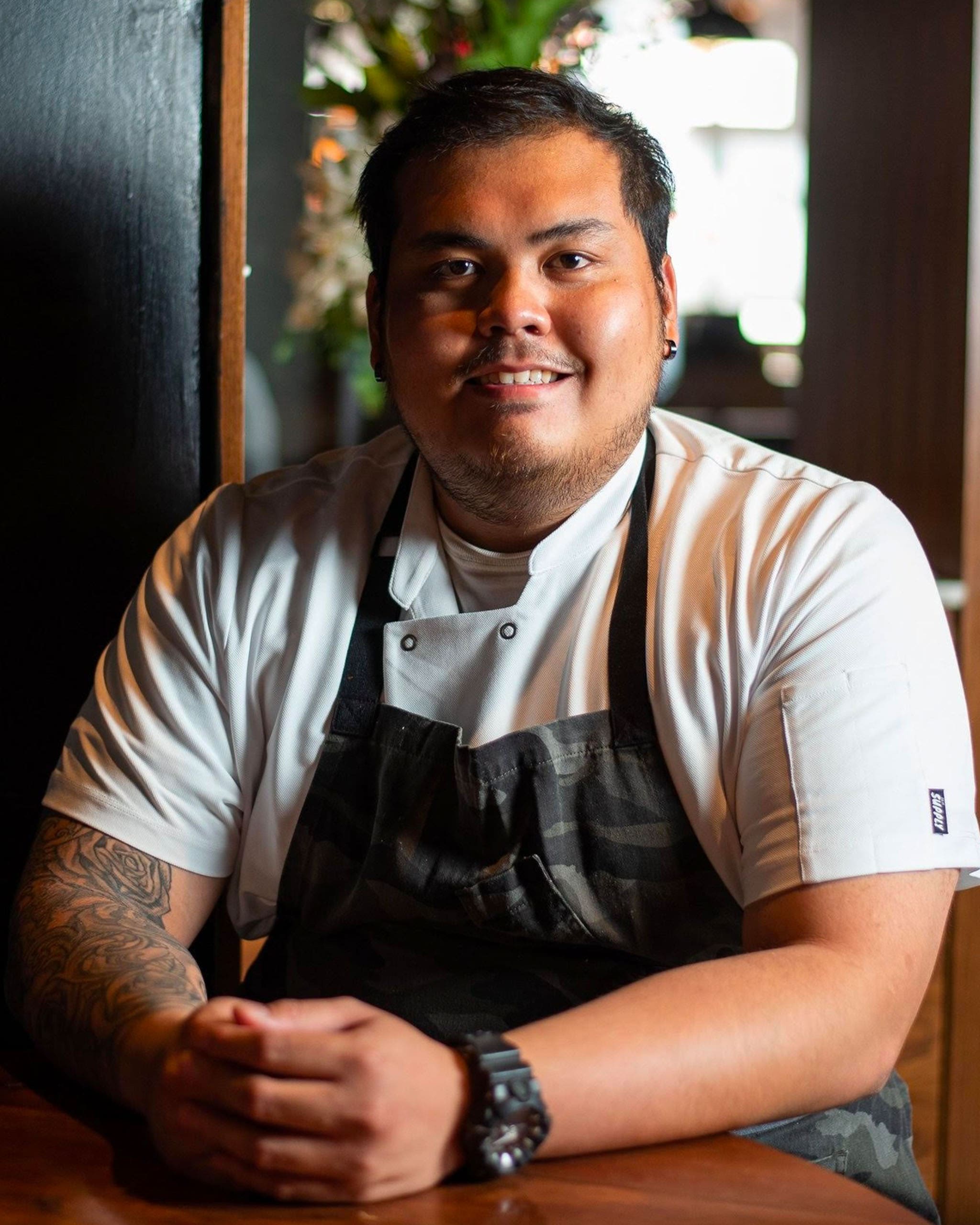Courtesy of Naks
Naks weaves memories and stories into a deeply personal menu that invites shock, wonder, and joy in the diversity of Filipino cuisine.
When talking about food, Chef Eric Valdez is an avid storyteller. His encyclopedic knowledge on regional Filipino ingredients, and their relevance to his own life, comes out in effortless interjections.
In the last hour, he introduced me to a salt called tibuok— commonly referred to as dinosaur salt—that is native to the site of his childhood summers, Ilocos. He spoke with fondness about bas oy, a blood soup from the Visayan region he and his longtime friend would enjoy at home. He reminisced about his introduction to the Philippines’ culinary diversity through hometown neighbors, how they hailed from all corners of the archipelago and never forgoed their regional cooking.
Stories weave into Valdez’s culinary vision. While it isn’t uncommon for chefs to bring to the table a nostalgic rendering of their childhood, Valdez is unafraid to propose a multidimensional definition of the Filipino culinary experience. “Filipino food is very aromatic, fishy, garlicky, brown…” Valdez trails off. He tsks. “People are afraid. But that’s our cuisine! We should be proud of it.”
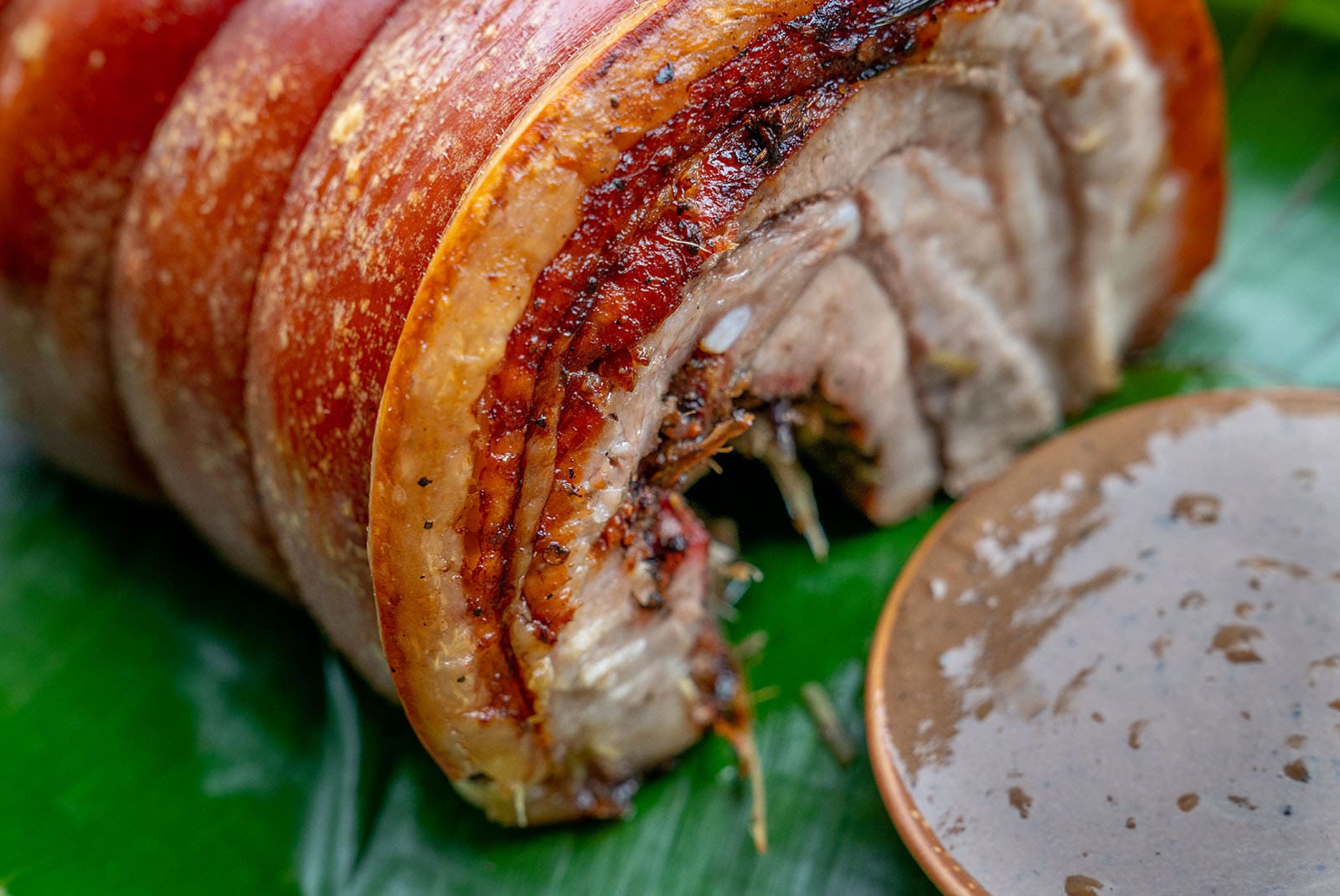
Valdez is at the helm of New York City’s highly anticipated new restaurant, Naks, a bold reimagining of Filipino dining that captures the dynamism of the country’s landscape and cultures. Set to open in early December in the East Village, the restaurant is backed by the decorated Unapologetic Foods group.
Naks is the group’s first venture outside of their powerhouse roster of Indian concepts. The group is something of an epic force in the city, committed to challenging unabashedly the codes of Indian cuisine through its restaurants Adda, Dhamaka, and Semma. In 2022, the latter was the only Michelin-starred Indian restaurant in the United States, and Head Chef Chintan Pandya became a James Beard award winner.
Valdez has been cooking Indian food for quite some time now. His training began at Junoon, the first Michelin-starred Indian restaurant in the United States. It’s there where he met Pandya, who would go on to found Unapologetic Foods with restaurateur Roni Mazumdar. From the onset of their collaboration six years ago, Valdez was already talking about one day opening a restaurant. When the time finally came, it was Pandya who turned to Valdez: “You can’t do Indian food all your life. Start building a concept.”
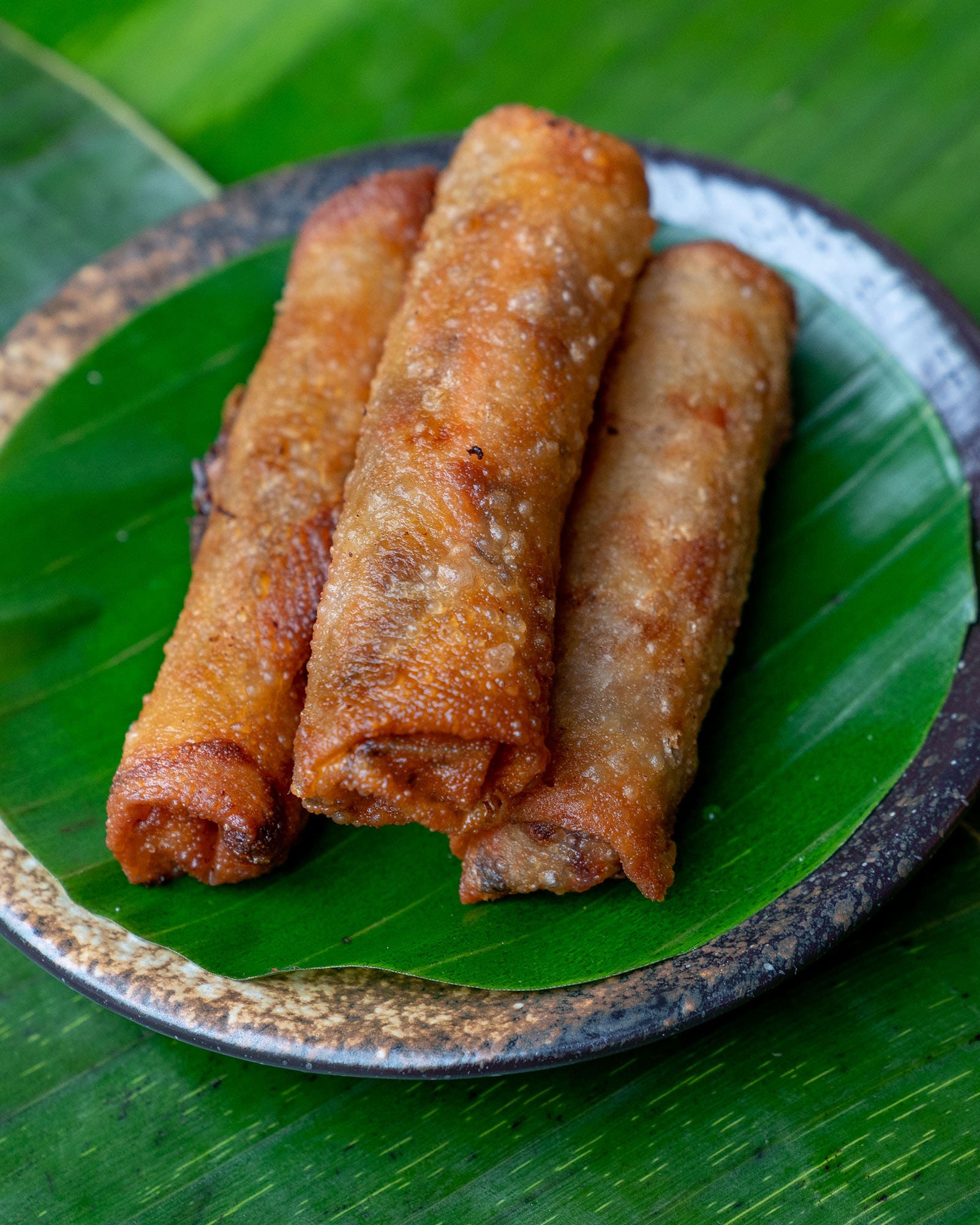
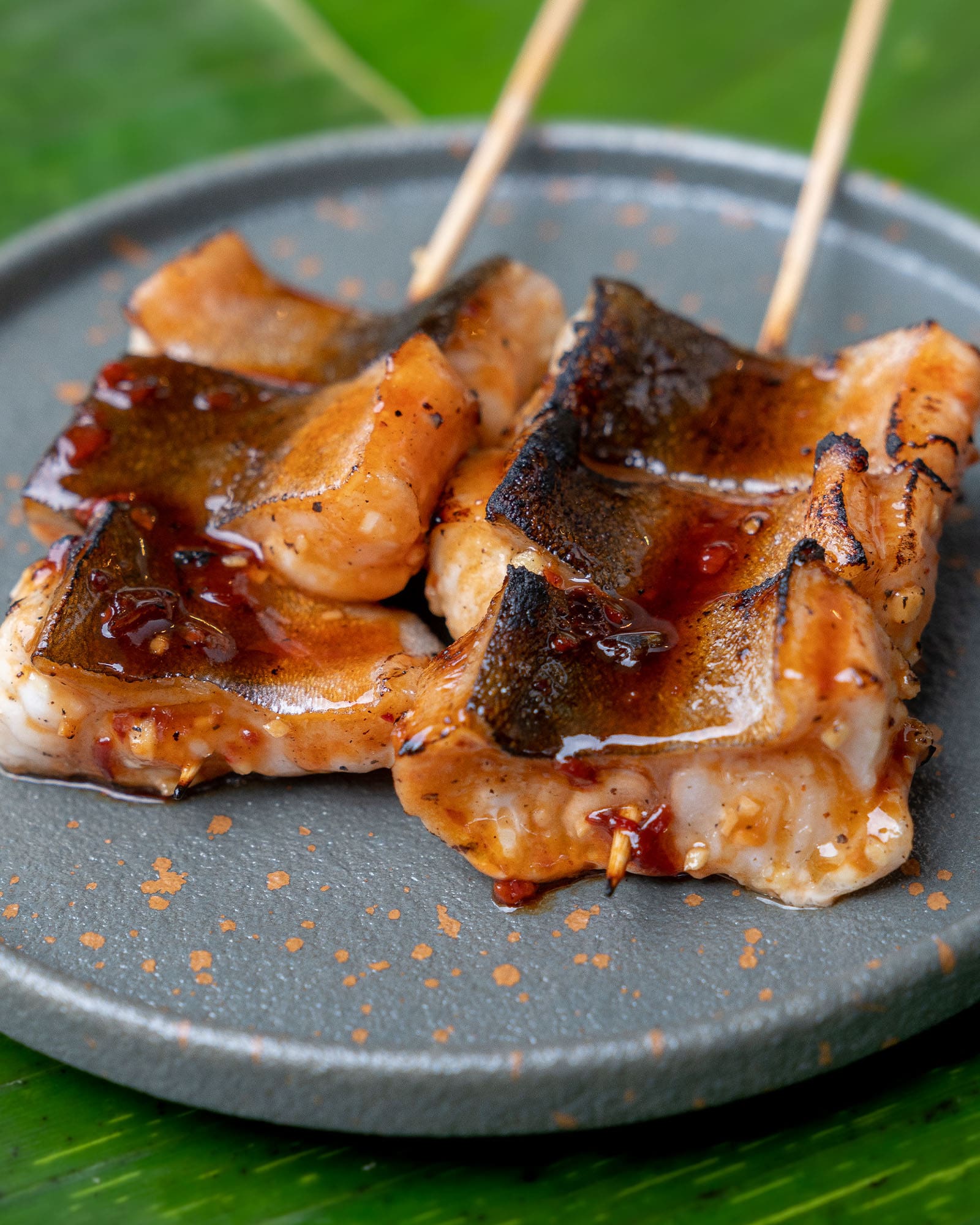
The Naks menu will be ambitiously ingredients-focused. The team was determined to recreate the country’s flavors in a way most authentic to regional styles, so sourcing ingredients that resemble that of the Philippines was a priority. “Obviously, we can’t do it a hundred percent because of the soil and the treatments local to the Philippines,” Valdez shares. “But we can do 95 percent. We’ll get as close as possible.”
There will be porcelet brought in from Canada, where the pork is raised on a milk diet; saba (plantain) from tropical Miami; dinosaur salt from Ilocos. There will be kamias (tree cucumber), red velvet horns, fish heads, and duck stock. As much as possible, everything down to the coconut milk will be homemade, simply because “that’s how we do it at home.” “I told them, if we don’t make it from scratch, we won’t serve it,” Valdez says. “The real flavor comes out when it’s labor intensive.”
Valdez will be joined by fellow Unapologetic Foods team member Aaron Asombrado, who will lead Naks’ bar program. Funnily enough, the tandem were schoolmates back in the Philippines, and that shared nostalgia seeps into their creative processes. “Originally, we wanted to do tagay,” Asombrado laughs. Tagay is a drinking culture where drinkers share a common glass and pour for the next person. In this case, the idea was for a table at Naks to take shots from two rotating glasses.
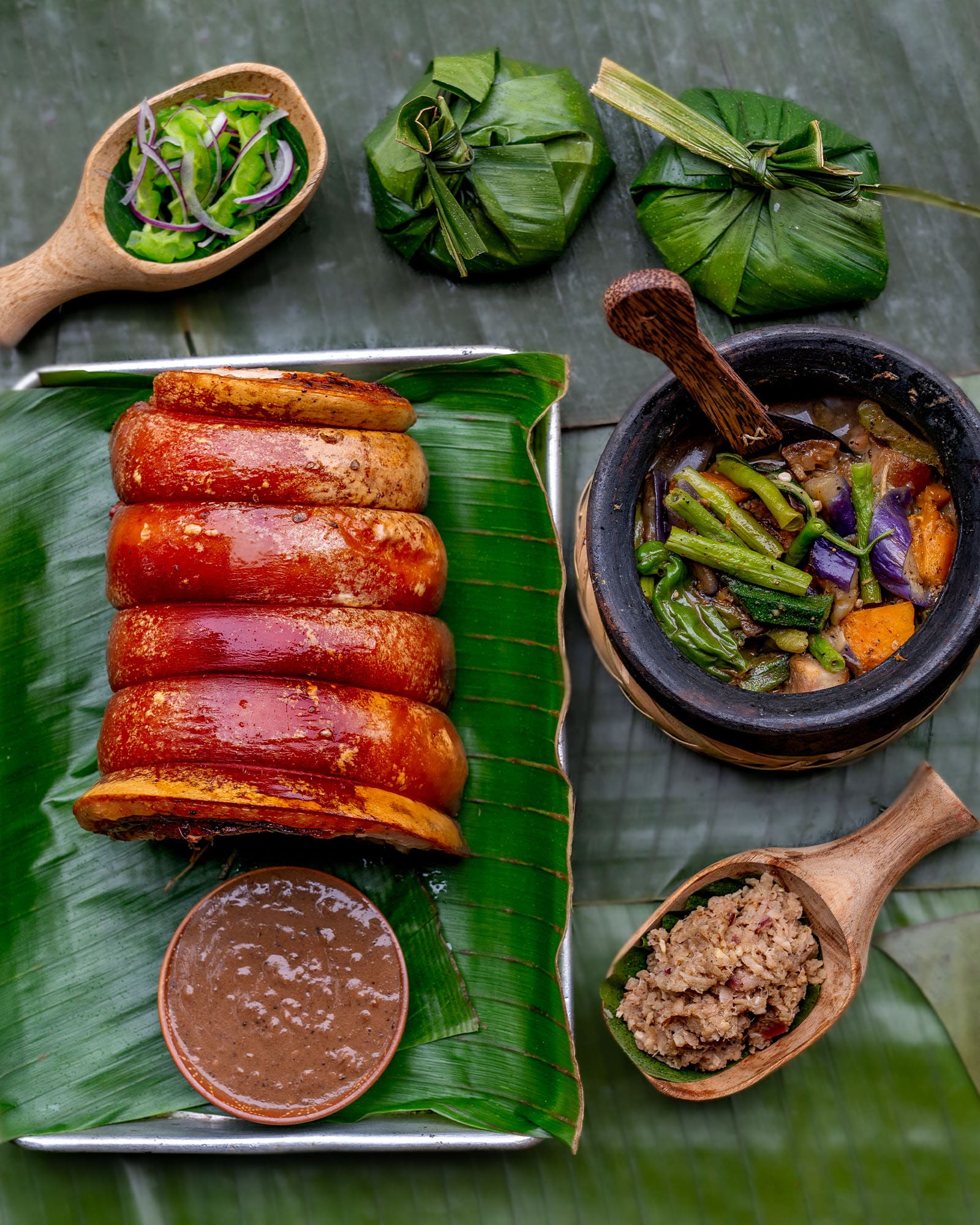
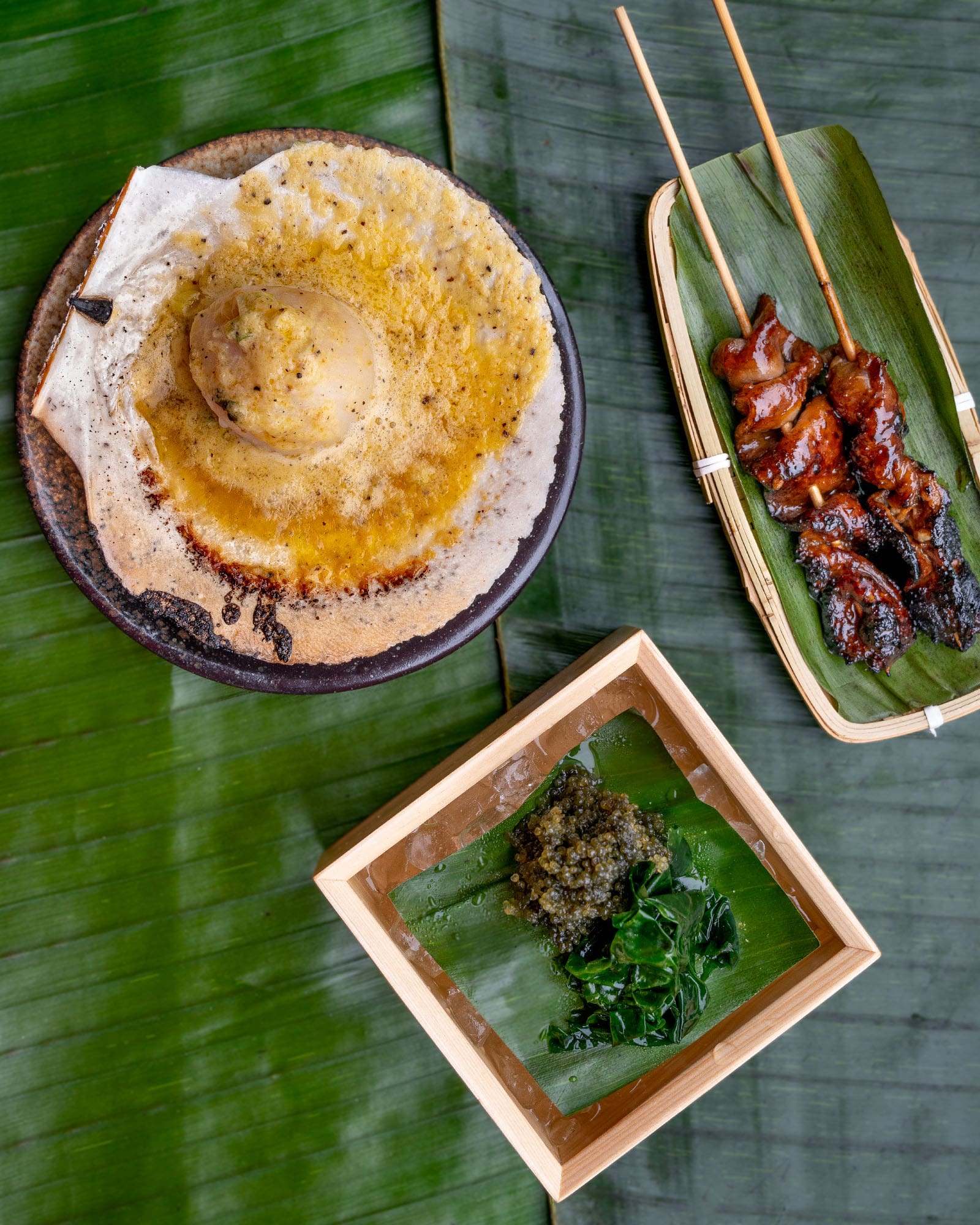
Although there will likely be no tagay at Naks, Asombrado still carefully considered the ways Philippine ingredients are employed locally and abroad. He will be avoiding ube, feeling as though it is overdone. There will also be no calamansi. Asombrado points out that it is, after all, largely used as a tarty dipping sauce. For him, it makes more sense to enlist sweet dalandan (sweet orange) juice.
In the summer of 2023, Valdez, Pandya, and Mazumdar embarked on a jam-packed itinerary spanning all three main islands of the Philippines, exploring the country’s culinary roots with all its grit and candor. Valdez toured the team around his hometown of Makati City, where they danced with the ever-evolving fine dining of the metropolis and immersed in the rich Chinese legacies of Binondo. In coastal Cebu, the team tried swaki (sea urchin) the local way: purchased for less than a dollar and contained in an empty glass bottle of cheap rum, its contents then dipped in vinegar and eaten with rice.
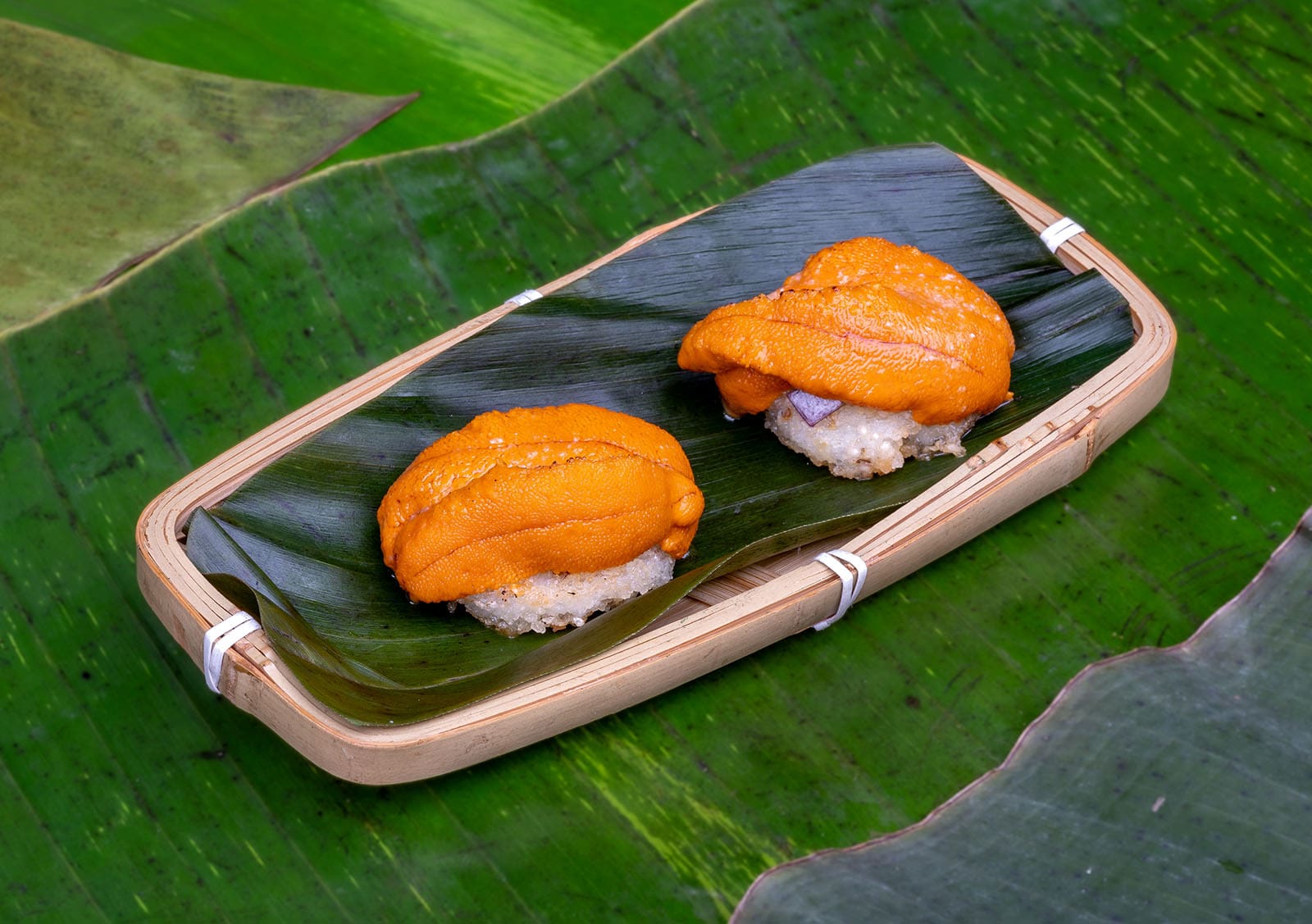
They tasted the culinary icons from their origin Pampangan eateries and searched for the southernmost street carts in Davao. Despite all their traversing, one of the team’s best meals was cooked by Valdez’s own uncle in his home in Ilocos, which also happens to be Valdez’s mother’s hometown. They were served homecooked igado (spiced pork and liver stew) and hito (catfish), and “the best tinola (chicken ginger broth)” as the chicken is native. “It was raining while we were there, and so we even lost electricity!”
To know our land and origins is a stepping stone, yet there will always be more to discover and traverse than we’ll ever realize. Chef Valdez knows this, and wants us to know it, too. By spanning stories and ages across seven thousand islands, Naks reckons with the fact that there is no singular definition of what it means to be Filipino. It is a brave personal project to showcase a world unknown to many, with both a sense of urgency and joy in the work. It is an exciting time to be a Filipino in New York City: Here Lies Love has just wrapped up its experimental run on Broadway, and Naks is setting up post in what was formerly the space of Jeepney, an early pioneer in Manhattan’s Filipino dining scene. The stories that are authentic to us have found ways to flourish, and one can only hope that they continue to blossom.
